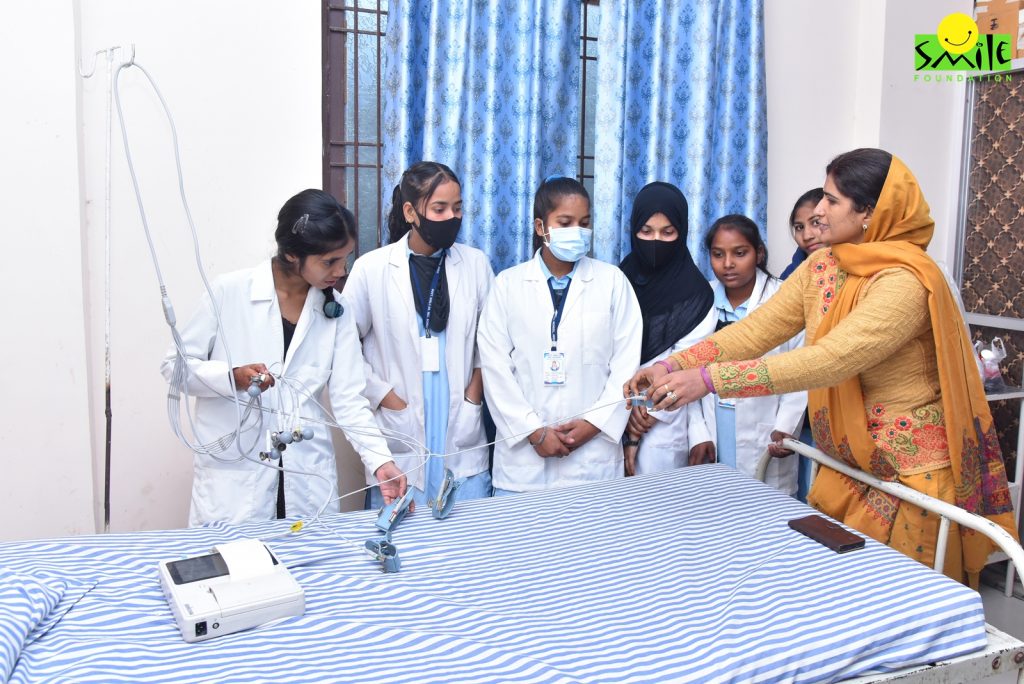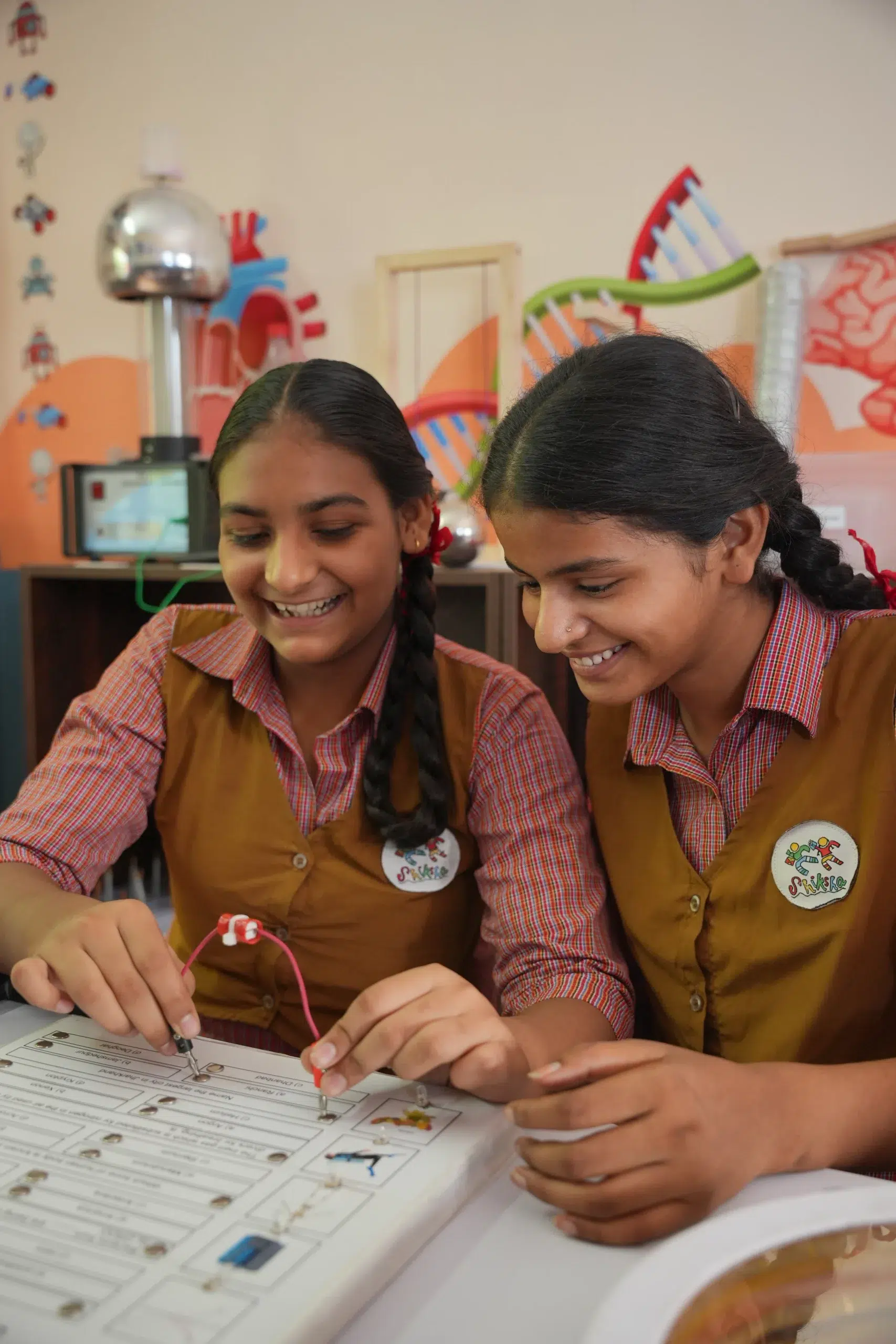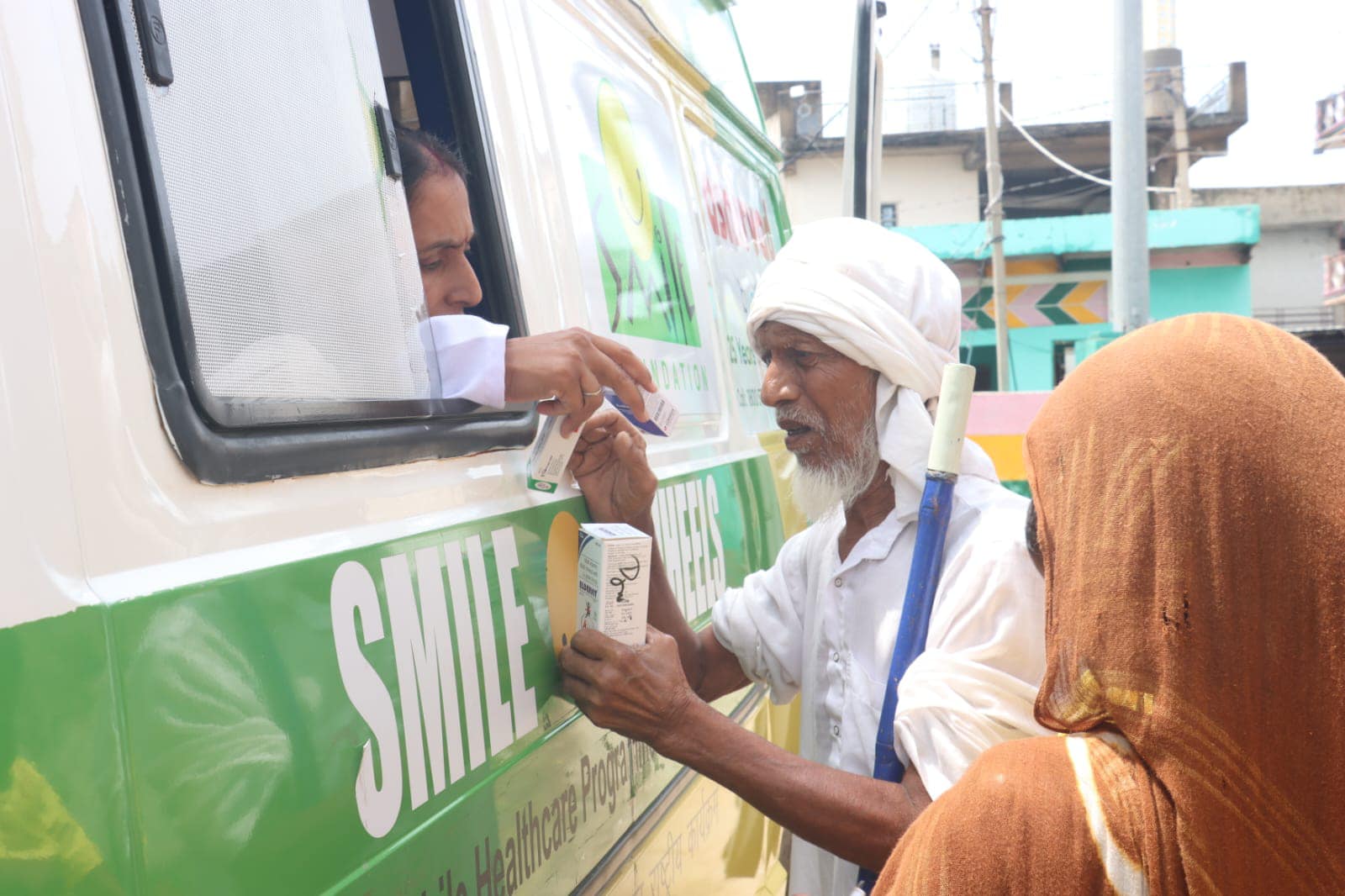When Writer’s Café launched in Gopalapuram, Chennai, in 2016, people were happy to have a space where they could have food for thought as well as food to munch on. What made it (and still makes it) even more remarkable was the fact that the women who manned it were burn survivors.
One of the women, who doused herself in kerosene after a fight with her alcoholic husband, said how she tried to get a job as an office assistant or data entry operator in vain. “People would see my scars and reject me,” she said, till she got vocational training and began working at the café. Today, she is able to support herself and her daughter.
This is a perfect example of how vocational training can empower women. Irrespective of the strata of society they come from, and whether they have college degrees or not, vocational training can help them earn a livelihood and live with dignity.
Need for vocational training
Whether it’s manufacturing, construction, retail, healthcare, or IT, many industries in India require skilled workers. Vocational training equips people with specific technical skills needed in these fields.
Vocational courses provide hands-on training that directly translates to the workplace, ensuring workers are better prepared for the demands of their roles.
When it comes to women, vocational training equips women with practical skills that are in demand across various industries — tailoring, cosmetology, computer skills, healthcare, or handicrafts. This enables women to enter the workforce or start their own businesses, which leads to financial independence.
It also increases their employability as they learn skills that employers look for, which can lead to both salaried jobs and entrepreneurial opportunities. Women who are financially independent often gain greater respect and recognition within their families and communities. Vocational training allows women to break traditional gender roles and proves that they can contribute economically, challenging stereotypes and increasing their social status.
“Financial independence empowers women in more ways than one. They will have better bargaining power not just in the workplace but also in their own households. They become part of decision-making even in matters of fertility and reproductive rights,” says Prasanna Gettu, founder and managing trustee, of The International Foundation for Crime Prevention and Victim Care (PCVC), an organisation which creates and extend support services for women and queer individuals affected by domestic and interpersonal violence.
At PCVC, economic empowerment is an important vertical in the overall plan for empowerment. “We usually come up with an individual service plan for each woman, and it is drawn up in collaboration with the client. We want her to lead her empowerment and have agency. We encourage women to pursue what they want and based on what they identify as strengths and capabilities,” says Prasanna. Her organisation networks with a lot of organisations who offer vocational training. “Women can learn how to become a mechanic, drive a car, or join the F&B industry. We have tie-ups with organisations that offer courses and give them placement.”
Vocational training helps reduce gender inequality by providing women with equal access to opportunities. It helps break the barriers that prevent women from pursuing work outside the home and earning a livelihood. Whether through creating small businesses or providing services that meet the needs of the local community, skilled women contribute to the economic and social well-being of their regions.
Studies prove vocational training empowers women
There are several Indian studies and reports that demonstrate how vocational training plays a crucial role in empowering women. They highlight the positive impact of skill development programmes on women’s socio-economic status, access to better job opportunities, and overall empowerment.
For instance, the National Sample Survey (NSS) provides a broad picture of education and skill development trends in India. According to the NSS 2013 data, women who have received vocational training are more likely to be employed in formal sectors, earn higher wages, and experience better job security than those without such training. The study highlights that vocational training helps women build skills in various sectors such as tailoring, healthcare, IT, and beauty services, enabling them to secure more stable and well-paying jobs.
A study by UNICEF in collaboration with the National Skill Development Corporation (NSDC), which focused on the impact of skill development programmes on rural women, highlighted that women who participated in vocational training were more likely to start small businesses or enter into formal employment. Vocational training helped women develop skills in areas such as stitching, weaving, and food processing, which improved their economic independence and allowed them to contribute to their family’s income.
A study conducted by the Ministry of Rural Development (MoRD) assessed the impact of the Deen Dayal Upadhyaya Grameen Kaushalya Yojana (DDU-GKY) on women’s empowerment in rural areas. The findings revealed that women trained under the scheme were able to secure jobs in various sectors such as retail, construction, beauty services, and hospitality, which enhanced their income and economic independence.
Vocational training also gave women the confidence to take leadership roles in their families and communities, challenging traditional gender norms and increasing their participation in decision-making processes. Empowered women were more likely to prioritize the education of their children and improve their family’s healthcare practices.
Another study conducted by the International Labour Organization (ILO), which focused on gender and vocational training in India, particularly for women in rural and informal sectors, showed that vocational training programmes tailored to women’s needs (such as flexible timings, childcare facilities, and gender-sensitive curriculums) led to increased participation in the workforce. Many women who received vocational training were able to set up their own businesses, such as tailoring, beauty salons, and food services. They were also better equipped to negotiate better wages, working hours, and working conditions.
Support from the government
Various government initiatives focus on providing vocational training to women, especially in rural areas. These programmes are designed to ensure that women have access to resources, guidance, and financial support needed to succeed.
For instance, the Pradhan Mantri Kaushal Vikas Yojana (PMKVY), a flagship scheme, was launched by the Ministry of Skill Development and Entrepreneurship (MSDE) to provide industry-relevant skill training to youth, including women, across the country. It has a special focus on empowering women by providing skills that can lead to self-employment or better job opportunities. DDU-GKY focuses on the rural youth, including women, by providing skills training in various sectors to make them employable or self-employed. Women beneficiaries are prioritized, and the scheme also emphasizes gender-sensitive training programmes.
The Mahila Coir Yojana is intended to provide self-employment to rural women artisans in regions producing coir fibre. It offers training women in coir processing, and making coir products such as mats, ropes, and carpets. Women artisans are encouraged to start their own coir businesses, enhancing economic independence and the scheme also provides support for entrepreneurship and self-employment.
Local government bodies also often launch initiatives aimed at empowering women through vocational training. According to Times of India, in 2024 Chandigarh municipal corporation along with an NGO conducted a ‘Driving Naari’ programme in Chandigarh to empower women of self-help groups by providing them equal opportunities in the field of driving as a career. It was aimed to empower underprivileged women to become professional drivers and give them access to remunerative “livelihoods with dignity”.
Private initiatives lend a helping hand
“Vocational training is imperative for anybody as it gives you skills. Even if you don’t have a degree, you have a skill that you can use. In the F&B sector, with the growth it is likely to see in the next five to eight years, human capital is of utmost importance to us,” says Tarun Mahadevan, managing director of Advantage Foods and trustee of Chennai Mission. “In our field you don’t look at educational qualifications, only if you have a skill and, if you don’t, whether you have the attitude to learn a skill.”
Nonprofits also help
As part of Smile Foundation’s educational initiatives, vocational exposure has been encouraged and initiated amongst students to facilitate holistic learning and development by providing a space for students beyond regular curriculum subjects to enable children and youth to make connections between different areas of learning.
As part of Smile Foundation’s women empowerment programme Swabhiman, entrepreneurship and skill development training are provided to women from urban slums and rural areas with limited means owning low scale businesses, giving them access to opportunities for economic empowerment, independence, and leadership. Industry experts join in-house Swabhiman trainers to help the women understand and apply the basics of business and financial management, marketing and communication. They are familiarized with ways and opportunities to scale up and expand their small-scale endeavours to maximize profit and grow as independent, successful entrepreneurs.
The initiative includes identification and selection of women, developing an entrepreneurial ecosystem for women entrepreneurs, building capacity of women to start and run Micro Enterprises (Business idea generation and financial literacy), workshops on E-commerce and digital marketing, technical and entrepreneurial capacity building (Business Plan Finalisation), enrolment in government schemes for livelihood opportunities and setting up Model Micro Enterprises.









